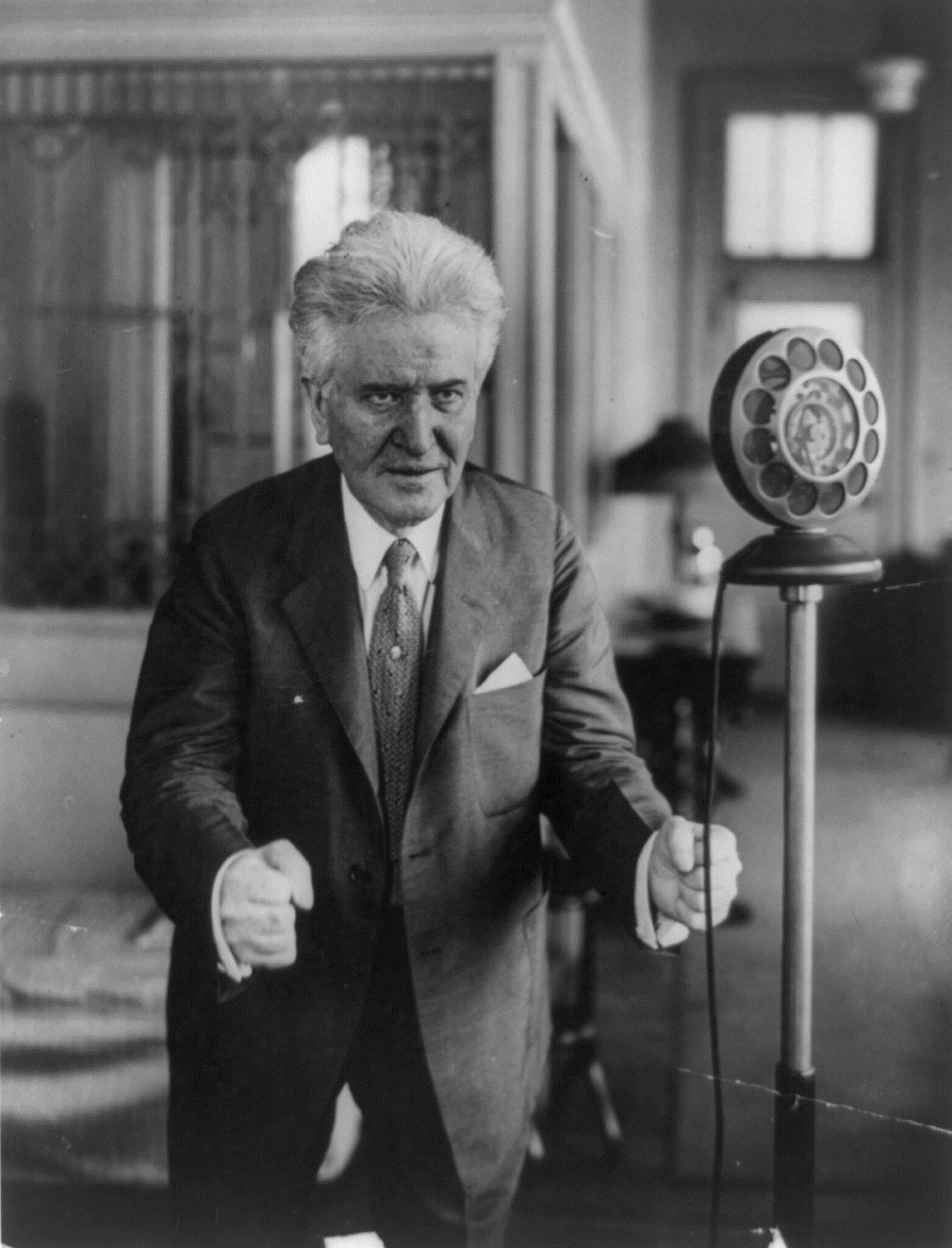Free Speech in Wartime (October 6, 1917)
Famous Robert M. La Follette Sr. Quotes
Free Speech in Wartime (October 6, 1917)
"Fooling the People as a Fine Art", La Follette's Magazine (April 1918)
“The Danger Threatening Representative Government” Speech (1897) http://www.wisconsinhistory.org/pdfs/lessons/EDU-SpeechTranscript-SpeechesLaFollette-DangerThreatening.pdf
"Fooling the People as a Fine Art", La Follette's Magazine (April 1918)
“Wealth has never yet sacrificed itself on the altar of patriotism.”
"La Follette Fights for Higher War Tax", New York Times http://query.nytimes.com/mem/archive-free/pdf?res=9E05E3DE123FE433A25751C2A96E9C946696D6CF (August 22, 1917)
Robert M. La Follette Sr. Quotes about war
Free Speech in Wartime (October 6, 1917)
Free Speech in Wartime (October 6, 1917)
Free Speech in Wartime (October 6, 1917)
Free Speech in Wartime (October 6, 1917)
"The Basis of the Struggle", July 31, 1909, La Follette's Weekly Magazine. Quoted in Matthew Rothschild, Democracy In Print : The Best of The Progressive Magazine, 1909-2009. Madison : University of Wisconsin Press, 2009.
Robert M. La Follette Sr. Quotes
Speech before Congress (April 4, 1917), Congressional Record—Senate, April 4, 1917, 224–225.
Context: Mr. President, I had supposed until recently that it was the duty of senators and representatives in Congress to vote and act according to their convictions on all public matters that came before them for consideration and decision. Quite another doctrine has recently been promulgated by certain newspapers, which unfortunately seems to have found considerable support elsewhere, and that is the doctrine of “standing back of the President” without inquiring whether the President is right or wrong.
For myself, I have never subscribed to that doctrine and never shall. I shall support the President in the measures he proposes when I believe them to be right. I shall oppose measures proposed by the President when I believe them to be wrong.
“The Danger Threatening Representative Government” Speech (1897) http://www.wisconsinhistory.org/pdfs/lessons/EDU-SpeechTranscript-SpeechesLaFollette-DangerThreatening.pdf
Context: Since the birth of the Republic, indeed almost within the last generation, a new and powerful factor has taken its place in our business, financial and political world and is there exercising a tremendous influence. The existence of the corporation, as we have it with us today, was never dreamed of by the fathers…The corporation of today has invaded every department of business, and it’s powerful but invisible hand is felt in almost all activities of life. The effect of this change upon the American people is radical and rapid. The individual is fast disappearing as a business factor and in his stead is this new device, the modern corporation.
"The Perils of Passive Citizenship", Speech in Washington, D.C. http://www.speeches-usa.com/Transcripts/robert_lafollete-perils.html (August 11, 1924)
"Fooling the People as a Fine Art", La Follette's Magazine (April 1918)
“Publicity, discussion, and agitation are necessary to accomplish any work of lasting benefit.”
Spoken in Evansville, IN (July 7, 1906), As quoted in Unreasonable Men: Theodore Roosevelt and the Republican Rebels Who Created Progressive Politics, Michael Wolraich (2014)
"Fooling the People as a Fine Art", La Follette's Magazine (April 1918)
"Fooling the People as a Fine Art", La Follette's Magazine (April 1918)
"Fooling the People as a Fine Art", La Follette's Magazine (April 1918)
"Fooling the People as a Fine Art", La Follette's Magazine (April 1918)
“Where public opinion is free and uncontrolled, wealth has a wholesome respect for the law.”
"Fooling the People as a Fine Art", La Follette's Magazine (April 1918)
“To control the American market is to own America.”
"Fooling the People as a Fine Art", La Follette's Magazine (April 1918)
